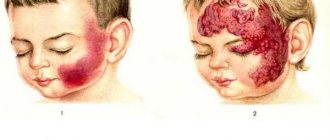Every 10 elderly people are diagnosed with dementia. Moreover, every 10 years this figure doubles as the number of elderly people grows. And in 50%-70% of cases it is associated with Alzheimer's disease1.
Alzheimer's disease is a chronic neurodegenerative disease characterized by the death of nerve cells in the brain. Since the neurons of the brain are destroyed, patients are characterized by disorders of memory and thinking, attention, speech, orientation in space, the ability to make decisions, and perform usual work duties. Mental disorders are expressed by anxiety and depression. In the later stages, intellect and mental activity disintegrate, and in general, motor disorders develop.
The disease is progressing all the time. On average, death occurs 8 years after diagnosis1. A medicine that can prevent the death of brain cells has not yet been invented, so the goal of treatment is to combat symptoms and increase life expectancy.
Kinds
The forms of the disease are divided according to age:
- with early (before 65 years) onset
- with late (after 65 years) onset
- atypical Alzheimer's disease (mixed type with vascular or other problems)
They differ not only in the age of onset of the disease. Often the timing of the onset of the first symptoms of Alzheimer's disease cannot be accurately determined, they are so invisible. It is important that the forms of Alzheimer's disease have significant differences in the clinical picture and features of the development of the disease, this allows for more accurate diagnosis.
Symptoms and signs
Symptoms and signs of Alzheimer's disease vary at different stages of the disease. First, short-term memory and the ability to remember new things are lost. The same questions are asked many times. Then abstract thinking is lost and long-term memory begins to suffer. Words, concepts, names of grandchildren, events of recent years are forgotten. Work tasks become impossible, writing and calculations are disrupted.
In older people, signs of Alzheimer's disease may include problems with mental calculations, forgetfulness, difficulty finding the right words, and handwriting becoming less legible.
In rare cases, the problem occurs before the age of 30, when there is a hereditary predisposition, as well as provoking factors such as diabetes mellitus and traumatic brain injuries. The difference is that the progression is much faster. First, short-term memory is impaired, then it becomes difficult to explain something. It is not always possible to start treatment on time, since Alzheimer's disease at a young age is easily confused with psychiatric diseases.
In women, the disease is more common and develops faster. Damage to nerve cells leads to changes in behavior: passivity, apathy, tearfulness, and frequent mood swings. Since the onset of the disease often coincides with menopause, it is not easy to determine that these are manifestations of Alzheimer's disease.
In men, the disease is diagnosed less frequently. Initial symptoms remain unnoticeable for a long time, and symptoms develop slowly.
Characteristics and classification
Memory is a function that allows a person to assimilate, store, retain in consciousness and, if necessary, repeatedly reproduce learned information. Cognitive abilities are interconnected with brain activity. Damage to the medulla of any etiology leads to disruption of cortical functions, which affects the ability to memorize and remember.
The ability to remember and store information is interconnected with the activity of all brain structures, but most of all with the hippocampal system, which is involved in memory consolidation (the process of transition from short-term to long-term). Severe memory disorders, called amnesia, are usually associated with previous episodes of stroke and TBI or a tumor localized in brain tissue.
Statistics show that about 3-20% of people over the age of 65 face the problem of forgetfulness, which significantly impairs the quality of life and safety conditions. In 40-80% of older people, cognitive impairment is mild. There are types of diseases when forgetting recent events becomes the leading symptom. The classification involves dividing cognitive impairments according to severity:
- Lungs. Deterioration of operational working memory (a system of limited capacity where information to be processed is temporarily stored). Working memory is used for current mental activity, reasoning, decision-making, and selection of a relevant behavior model that is adequate to the current situation.
- Moderate. Deterioration in the function of remembering and reproducing previously memorized information.
- Heavy. Memory degradation. Deterioration of all types of memory - operational, short-term, long-term.
In severe cases, a diagnosis of dementia is made. A mandatory diagnostic criterion for dementia is a combination of impairments in memory and other cognitive functions - speech, perception of reality, mental activity, ability to predict and plan.
Diagnostics
Tests
A neurologist or psychiatrist can make the correct diagnosis and identify the initial symptoms of Alzheimer's disease.
Diagnosis of Alzheimer's disease must be comprehensive.
In addition to the usual questioning and examination, psychological tests are used that identify problems with memory and cognitive functions at an early stage.
Examples of tasks:
- draw a clock face with a given time (for example 10.45);
- draw a clock face;
- reproduce a geometric figure from a picture;
- rewrite the sentence;
- read cards with words and then repeat;
- find the given symbol/number in the picture.
It is advisable for every elderly person to undergo testing in order to identify problems at an early stage.
Neuroimaging
Magnetic resonance imaging (MRI), computed tomography (CT), and positron emission tomography (PET) are used. These methods help to see changes in the structure of the brain. The doctor evaluates atrophic changes, the size of the grooves, gyri, and affected areas. Modern research helps to exclude other diseases, such as strokes, tumors, and prescribe the correct treatment.
Genetic testing
Helps to identify a disease with an early onset and aggressive course. Used in the diagnosis of familial forms of Alzheimer's disease.
Laboratory research
Allows you to exclude other diseases with similar symptoms of dementia. An analysis of liver enzymes, assessment of thyroid function, levels of B vitamins, folate, tests for syphilis, HIV, and urine testing are required. Examination of cerebrospinal fluid if a tumor or infection of the central nervous system is suspected.
A detailed analysis and history of the development of symptoms is important; this can increase the accuracy of diagnosing asthma to 90–95%2. It is important to note any new signs in the patient’s behavior. Sometimes this information plays a more important role compared to even CT/MRI studies.
Stages of the disease
Alzheimer's disease develops gradually, not all at once.
"Doubtful" dementia
The early stage may not be noticeable to others and can only be revealed through detailed neurocognitive tests. This stage is characterized by mild forgetfulness and inaccurate memories. You can also notice difficulties in determining the similarities and differences between objects and events. Abstract thinking and planning are difficult. In ordinary life, we won’t even notice this, so a person manages to hide or compensate for small problems in communication and work.
Mild dementia
Memory impairments become more obvious, especially for recent events. A person can get lost and forget his usual route. Confuse the order of events. Cannot find commonality or compare two objects or events. The ability to do calculations and write letters is lost. Such a person will speak slowly, use simple words, sometimes they may not be enough for reasoning. At the same time, the usual self-care activities are preserved.
Changes in behavior are already possible in the form of petty nonsense that someone is stealing from him, oppressing him, or causing harm. The state may be depressed due to the understanding that “something is wrong” with the head.
Moderate dementia
At this stage, learning new information becomes impossible. A person gets confused in the order of important events in his own life. He ceases to understand where he is and what time it is. The stock of memory and knowledge is constantly decreasing, they are becoming more and more inaccurate and blurred. Speech is impaired, first the ability to write is lost, then to read.
A “time shift” into the past may occur in consciousness. A person thinks and perceives everything as if he were not living today, but in a time that he still remembers. This may be accompanied by energy and a persistent desire for pseudo-activity.
Severe dementia
A person completely loses touch with reality, he not only does not orient himself in time and space, but also loses the idea of himself, his personality. Such a person cannot live independently. Attention is very weak. Reactions are more template, “automatic”. At the same time, emotional contact is preserved; an example would be “imaginary” conversations, when the patient tries to maintain a conversation, but its content is completely meaningless. The mood can change from aggression to apathy.
The patient is weakened psychologically and physically. Activity decreases sharply, complications develop in the form of bedsores, pneumonia, which leads to death.
Dietary supplements inexpensively
Modern life forces people to live in constant stress. Probably only a few today can say that they do not experience any out-of-the-ordinary mental states. Fears, anxiety, depression, sleep and eating disorders - all these are consequences of the frantic rhythm that modernity sets for humanity.
Thousands of people around the world live with mental disorders and illnesses without even knowing it. And there are those who are aware of the presence of a mental problem, but do not seek help from a psychiatrist, considering it humiliating or completely unnecessary.
Free consultation right now!
Online consultation with a specialist on your issue!
License number: LO-77-01-019036
Many mental illnesses are difficult to diagnose. Even experienced doctors sometimes cannot immediately understand what they are dealing with and insist on conducting additional research on a patient who has applied to the clinic for help.
Causes
There are many theories about the occurrence of Alzheimer's disease, but the exact cause has not been established.
The exact cause is still not determined.
Lack of acetylcholine. It was thought that the disease might be related to a deficiency of this neurotransmitter. But it turned out that the administration of this substance does not improve the condition of patients.
Amyloid theory. Amyloid protein is deposited in brain tissue and is detected on CT/MRI in the form of plaques. First, the transmission of nerve impulses is disrupted, then the brain cells die. It can take 10-15 years from the appearance of the first plaques to mild forgetfulness3.
Tau theory. Structural abnormalities occur in the structure of tau protein, which is contained in nerve cells. This disrupts the transmission of nerve impulses, and ultimately leads to the death of the neuron. These disorders are usually detected after the onset of amyloid plaques.
Genetic predisposition becomes the cause in only 10% of cases1.
Alzheimer's disease
Signs
Alzheimer's disease affects each person differently, but it also has common symptoms.
There are four stages of the disease: predementia, early dementia, moderate dementia, severe dementia.
Pre-dementia is the first, earliest symptoms of the disease, which are often not noticed, attributing them to age or stress. However, if you carefully observe a person, the disease can be recognized five years before its onset. Symptoms of pre-dementia:
- inability to recall recently learned information;
- inability to learn new information;
- inability to concentrate;
- inability to remember the meaning of any known word;
- disturbance of abstract thinking;
- apathy.
Of course, these manifestations do not always indicate imminent Alzheimer's disease, but it is better to contact a good specialist for examination.
With further progression of the disease, early dementia occurs. This stage is characterized by progressive memory impairment. Moreover, old memories, body memory, facts learned long ago remain in memory, but what happened recently is erased from it. However, for some people, memory remains at the proper level, but speech, movement, and perception are impaired. Speech becomes slower and vocabulary becomes poorer. Fine motor skills are impaired, making it difficult for a person to write, fasten buttons, and perform other small movements. Sometimes he needs help. However, most of the time, a person suffering from Alzheimer's disease at this stage does not need help.
In mild dementia, speech impairment becomes increasingly apparent. A person not only forgets words, he looks for replacements for them, but at the same time increasingly chooses the wrong words. This phenomenon is called paraphrasy. Reading and writing skills are also impaired, coordination of movements is impaired, and it becomes increasingly difficult to cope with household chores. In addition, memory deteriorates; a person suffering from Alzheimer's disease stops recognizing relatives, and when going outside, they may forget the way home. The patient may become aggressive and resist care. Often these people develop urinary incontinence. At this stage, the sufferer is often transferred to a hospital, since it is difficult for untrained people to cope with them.
The last stage of the disease is severe dementia. At this stage, the patient is able to speak only in a few short phrases or even individual words, but they understand both the words and the emotions addressed to them quite well. Those suffering from severe dementia are apathetic and exhausted, although some occasionally try to show aggression. They have difficulty moving, after some time they stop leaving the bed and begin to eat only with outside help. However, Alzheimer's sufferers often die from another illness, such as pneumonia or pressure ulcers.
Description
Alzheimer's disease was first described by German psychiatrist Alois Alzheimer in 1906. He saw in the brain of a woman who died due to an unknown mental illness, amyloid plaques (consisting of a protein-carbohydrate complex - amyloid) and tangled neurofibrillary fibers. However, neither its causes nor methods of treatment are still unknown. But it is known that this disease develops in people over 50 years of age. The average age of onset of the disease is 54-56 years, but there is a known case when the patient was only 28. At the age of 65-74 years, Alzheimer's disease is diagnosed in 5% of the population in this age group. And after 85 years, this disease is detected in every second person. It is also known that those with higher education suffer from this disease less often than those who have not received this education. It is believed that this happens because an educated person has more connections between nerve cells.
It is also known that women are more likely to suffer from Alzheimer's disease. This may be due to the fact that their life expectancy is longer, and men simply do not live to see the onset of the disease.
Changes in the brain in Alzheimer's disease occur in the outer layer - the cerebral cortex and in the hippocampus - a region of the brain located deep in the hemispheres and plays an important role in memory processes. It is there that amyloid “senile” plaques are deposited, and neurofibrillary tangles are formed from dead neurons. There are several hypotheses why this happens. The oldest of these is the cholinergic hypothesis, according to which the disease develops due to a decrease in the neurotransmitter acetylcholine. It is known that in Alzheimer's disease, the concentration of the enzyme necessary for the synthesis of acetylcholine, acetyltransferase, decreases in the brain, and as a result, the amount of the neurotransmitter itself decreases. It is on this theory that all modern treatment is based. But existing drugs cannot cure the disease, so the cholinergic hypothesis is currently not very supported in the scientific world.
The amyloid hypothesis was put forward in 1991. According to her, the main cause of the disease is the deposition of amyloid in the brain. Amyloid is formed from a protein that is encoded on chromosome 21. This theory is confirmed by the fact that all those suffering from Down syndrome who live to the age of 40 develop Alzheimer's-like pathology. But it is known that Down syndrome is trisomy 21 chromosomes.
There is also the tau hypothesis, according to which mental disorders are caused by a violation of the structure of the tau protein, in which the threads of this protein combine with each other and form neurofibrillary tangles. This disrupts the functioning of the neuron, and after some time leads to cell death.
However, no matter what happens in the brain during Alzheimer’s disease, the effect is the same - the amount of information that neurons are able to transmit decreases, as a result, thought processes deteriorate and memory is impaired.
Diagnostics
To make a correct diagnosis, you need to undergo an examination by a neurologist and psychiatrist. They must find out how long ago the first symptoms appeared, whether any of the relatives suffered from Alzheimer's disease, and give directions for tests and studies. You will need to undergo general and biochemical blood tests, and a general urine test. To see changes in the brain, you need to do a computer or positron emission tomography of the brain. Electroencephalography and electrocardiography will also be required. Thyroid tests may be required.
Treatment
There is no cure for Alzheimer's disease. But modern drugs help slow down and even stop the development of the disease. However, medications alone are not enough; people suffering from Alzheimer's disease need special care and assistance from a psychotherapist so that the patient does not feel like a burden for relatives or a lonely, useless disabled person. Art therapy, music therapy, hippotherapy, and therapy with the participation of other animals are often used to improve the condition of patients.
Prevention
To prevent Alzheimer's disease, doctors recommend intellectual activity. Read, learn languages, solve crosswords, play chess - all means are good.
However, do not forget about a healthy lifestyle. Of course, there is no direct evidence yet, but doctors believe that proper nutrition, moderate exercise, walks in the fresh air, and taking vitamins (if necessary) will help maintain mental health longer.
©
Doctor Peter
Treatment
Today, treatment for Alzheimer's disease is aimed at combating symptoms and improving the quality of life of patients.
It is important to start treatment in a timely manner!
Cholinesterase inhibitors. The following drugs are used to combat acetylcholine deficiency:
- acetylcholine precursors (citicoline, choline alfoscerate);
- promoting the release of acetylcholine in the synapse (ipidacrine);
- capable of enhancing the effect of acetylcholine (galantamine);
- blocking the breakdown of acetylcholine (rivastigmine, donepezil, galantamine, ipidacrine);
Memantine is the only drug recommended worldwide for the treatment of dementia due to Alzheimer's disease. Can be used for moderate to severe cases.
Cerebrolysin – believed to increase brain cell viability.
All drugs can have significant side effects and have strict contraindications, so the dosage regimen is selected individually by the doctor. It is also impossible to supplement the treatment regimen with nootropics in order to support the brain on your own.









